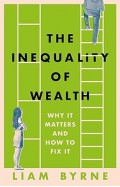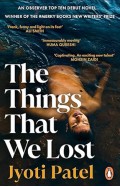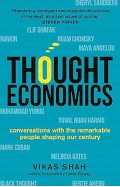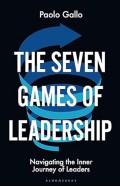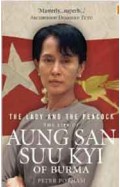- Home
- Categories
- Non Fiction
- History
- Ancient & Civilization
- The Golden Road - How Ancient India Transformed the World
The Golden Road - How Ancient India Transformed the World
By: William Dalrymple
-
Rs 4,135.50
- Rs 4,595.00
- 10%
-

You save Rs 459.50.
Due to constant currency fluctuation, prices are subject to change with or without notice.
India was the forgotten heart of the ancient world
For a millennium and a half, from about 250 BC to 1200 AD, India was a confident exporter of its diverse civilisation, creating around it a vast empire of ideas, an 'Indosphere' where its influence was predominant. During this period, the rest of Asia was the willing recipient of a mass-transfer of Indian soft power. Indian art, religions, technology, astronomy, music, dance, literature, mathematics and mythology blazed a trail across the world, along a Golden Road that stretched from the Red Sea to the Pacific, connecting different places and ideas to one another.
Like ancient Greece, ancient India came up with a set of profound answers to the big questions about what the world is, how it operates, why we are here and how we should live our lives. Out of India came holy men, monks and missionaries as well as pioneering merchants and artists, astronomers and healers, scientists and mathematicians. The Golden Road highlights India's oft-forgotten position as a crucial economic and civilisational hub at the heart of ancient Eurasia.
Multiple award-winning historian William Dalrymple gives a name to this spread of Indian ideas that transformed the world; crossing political borders and influencing everything they touched, from statues of Indian ascetics erected in Roman seaports to Cambodian friezes of the Mahabharata, from the Buddhism of Japan to the Hindu rituals of Bali, from the echoes of Sanskrit poems found in Chinese poetry to the discovery of the algorithm and the observatories of Baghdad.
Over half the world's population lives in areas where Indian religions and culture are, or once were, dominant. Meanwhile India's intellectual influence travelled far to the West, giving us not only crucial mathematical concepts such as zero, but also the very numbers we use to this day: arguably the nearest thing humanity has to a universal language. Drawing from a lifetime of scholarship, Dalrymple argues that India is the great intellectual and philosophical superpower of ancient Asia.
India was the forgotten heart of the ancient world
For a millennium and a half, from about 250 BC to 1200 AD, India was a confident exporter of its diverse civilisation, creating around it a vast empire of ideas, an 'Indosphere' where its influence was predominant. During this period, the rest of Asia was the willing recipient of a mass-transfer of Indian soft power. Indian art, religions, technology, astronomy, music, dance, literature, mathematics and mythology blazed a trail across the world, along a Golden Road that stretched from the Red Sea to the Pacific, connecting different places and ideas to one another.
Like ancient Greece, ancient India came up with a set of profound answers to the big questions about what the world is, how it operates, why we are here and how we should live our lives. Out of India came holy men, monks and missionaries as well as pioneering merchants and artists, astronomers and healers, scientists and mathematicians. The Golden Road highlights India's oft-forgotten position as a crucial economic and civilisational hub at the heart of ancient Eurasia.
Multiple award-winning historian William Dalrymple gives a name to this spread of Indian ideas that transformed the world; crossing political borders and influencing everything they touched, from statues of Indian ascetics erected in Roman seaports to Cambodian friezes of the Mahabharata, from the Buddhism of Japan to the Hindu rituals of Bali, from the echoes of Sanskrit poems found in Chinese poetry to the discovery of the algorithm and the observatories of Baghdad.
Over half the world's population lives in areas where Indian religions and culture are, or once were, dominant. Meanwhile India's intellectual influence travelled far to the West, giving us not only crucial mathematical concepts such as zero, but also the very numbers we use to this day: arguably the nearest thing humanity has to a universal language. Drawing from a lifetime of scholarship, Dalrymple argues that India is the great intellectual and philosophical superpower of ancient Asia.
From The Holy Mountain A Journey In The Shadow Of Byzantium
By: William Dalrymple
Rs 2,316.00 Rs 2,895.00 Ex Tax :Rs 2,316.00
Return of a King The Battle for Afghanistan
By: William Dalrymple
Rs 2,965.50 Rs 3,295.00 Ex Tax :Rs 2,965.50
Nine Lives: In Search of the Sacred in Modern India
By: William Dalrymple
Rs 2,965.50 Rs 3,295.00 Ex Tax :Rs 2,965.50
The Last Mughal: The Fall of a Dynasty, Delhi, 1857
By: William Dalrymple
Rs 3,415.50 Rs 3,795.00 Ex Tax :Rs 3,415.50
Zubin Mehta: A Musical Journey (An Authorized Biography)
By: VOID - Bakhtiar K. Dadabhoy
Rs 892.50 Rs 1,050.00 Ex Tax :Rs 892.50
The Sabres of Paradise - Conquest and Vengeance in the Caucasus
By: Lesley Blanch
Rs 8,995.50 Rs 9,995.00 Ex Tax :Rs 8,995.50
The Island of Missing Trees: Shortlisted for the Women’s Prize for Fiction 2022
By: Elif Shafak
Rs 2,245.50 Rs 2,495.00 Ex Tax :Rs 2,245.50
Guns Germs And Steel A Short History Of Everybody For The Last 13000 Years
By: Jared Diamond
Rs 2,965.50 Rs 3,295.00 Ex Tax :Rs 2,965.50
The Modern Mind An Intellectual History of the 20th Century
By: Peter Watson
Rs 3,565.75 Rs 4,195.00 Ex Tax :Rs 3,565.75
From The Holy Mountain A Journey In The Shadow Of Byzantium
By: William Dalrymple
Rs 2,316.00 Rs 2,895.00 Ex Tax :Rs 2,316.00
Knowledge Encyclopedia History!: The Past as You've Never Seen it Before
By: DK
Rs 4,495.50 Rs 4,995.00 Ex Tax :Rs 4,495.50
The Sabres of Paradise - Conquest and Vengeance in the Caucasus
By: Lesley Blanch
Rs 8,995.50 Rs 9,995.00 Ex Tax :Rs 8,995.50
The Island of Missing Trees: Shortlisted for the Women’s Prize for Fiction 2022
By: Elif Shafak
Rs 2,245.50 Rs 2,495.00 Ex Tax :Rs 2,245.50
An Unquiet Mind - A Memoir of Moods and Madness
By: Kay Redfield Jamison
Rs 2,515.50 Rs 2,795.00 Ex Tax :Rs 2,515.50
The Self-Confidence Workbook for Teens: Mindfulness Skills to Help You Overcome Social Anxiety, Be Assertive, and Believe in Yourself
By: Ashley Vigil-Otero
Rs 3,595.50 Rs 3,995.00 Ex Tax :Rs 3,595.50
Time's Echo: Music, Memory, and the Second World War
By: Jeremy Eichler
Rs 2,965.50 Rs 3,295.00 Ex Tax :Rs 2,965.50
Why We Meditate - A Science-Based Guidebook
By: Daniel Goleman
Rs 2,375.75 Rs 2,795.00 Ex Tax :Rs 2,375.75
Discover Your Destiny with the Monk who Sold His Ferrari - The 7 Stages of Self-awakening
By: Robin Sharma
Rs 1,525.50 Rs 1,695.00 Ex Tax :Rs 1,525.50
The Sober Diaries - How one woman stopped drinking and started living
By: Clare Pooley
Rs 2,375.75 Rs 2,795.00 Ex Tax :Rs 2,375.75
The Glass Cliff - Why Women in Power Are Undermined - and How to Fight Back
By: Sophie Williams
Rs 3,595.50 Rs 3,995.00 Ex Tax :Rs 3,595.50
Talent on Demand - Managing Talent in an Age of Uncertainty
By: Peter Cappelli
Rs 2,290.75 Rs 2,695.00 Ex Tax :Rs 2,290.75
This Book Could Fix Your Life - The Science of Self Help
By: Helen Thomson
Rs 2,965.50 Rs 3,295.00 Ex Tax :Rs 2,965.50
The Science of Sleep - Stop Chasing a Good Night's Sleep and Let It Find You
By: Heather Darwall-Smith
Rs 2,545.75 Rs 2,995.00 Ex Tax :Rs 2,545.75
Managing Your Anxiety (HBR Emotional Intelligence Series)
By: Harvard Business Review
Rs 5,395.50 Rs 5,995.00 Ex Tax :Rs 5,395.50
The Landmark Arrian - The Campaigns of Alexander
By: Robert B. Strassler
Rs 1,909.10 Rs 2,246.00 Ex Tax :Rs 1,909.10
Kahani Khazana Pri-Primary 1 Char Chuhay
By: Sunrise publications
Rs 265.50 Rs 295.00 Ex Tax :Rs 265.50
Thought Economics: Conversations with the Remarkable People Shaping Our Century
By: Vikas Shah
Rs 2,695.50 Rs 2,995.00 Ex Tax :Rs 2,695.50
The Seven Games of Leadership - Navigating the Inner Journey of Leaders
By: Paolo Gallo
Rs 3,865.50 Rs 4,295.00 Ex Tax :Rs 3,865.50
The Magic of Japanese Zen Gardens - A Meditative Journey
By: Thomas Kierok
Rs 14,395.50 Rs 15,995.00 Ex Tax :Rs 14,395.50
Stuart Broad: Broadly Speaking - PRE-ORDER HIS AUTOBIOGRAPHY NOW
By: Stuart Broad
Rs 5,305.50 Rs 5,895.00 Ex Tax :Rs 5,305.50
The Great Railway Bazaar - By Train Through Asia
By: Paul Theroux
Rs 2,515.50 Rs 2,795.00 Ex Tax :Rs 2,515.50
The Lady And The Peaok The Life of Aung San Suu Kyi of Burma
By: Peter Popham
Rs 760.75 Rs 895.00 Ex Tax :Rs 760.75
Zubin Mehta: A Musical Journey (An Authorized Biography)
By: VOID - Bakhtiar K. Dadabhoy
Rs 892.50 Rs 1,050.00 Ex Tax :Rs 892.50
From The Holy Mountain A Journey In The Shadow Of Byzantium
By: William Dalrymple
Rs 2,316.00 Rs 2,895.00 Ex Tax :Rs 2,316.00
Return of a King The Battle for Afghanistan
By: William Dalrymple
Rs 2,965.50 Rs 3,295.00 Ex Tax :Rs 2,965.50
Nine Lives: In Search of the Sacred in Modern India
By: William Dalrymple
Rs 2,965.50 Rs 3,295.00 Ex Tax :Rs 2,965.50
The Last Mughal: The Fall of a Dynasty, Delhi, 1857
By: William Dalrymple
Rs 3,415.50 Rs 3,795.00 Ex Tax :Rs 3,415.50
The Sabres of Paradise - Conquest and Vengeance in the Caucasus
By: Lesley Blanch
Rs 8,995.50 Rs 9,995.00 Ex Tax :Rs 8,995.50
The Island of Missing Trees: Shortlisted for the Women’s Prize for Fiction 2022
By: Elif Shafak
Rs 2,245.50 Rs 2,495.00 Ex Tax :Rs 2,245.50













-120x187.jpg?q6)
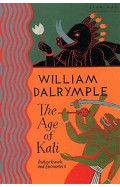
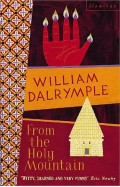
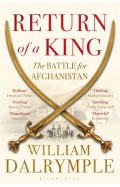

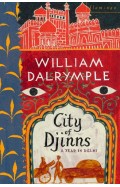
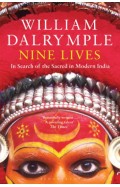
-120x187.jpg?q6)
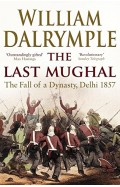
-120x187.jpg?q6)







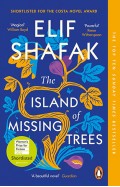
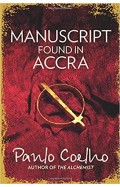


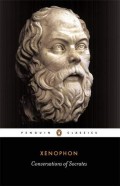
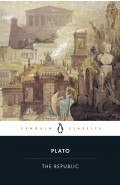
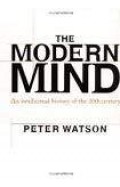
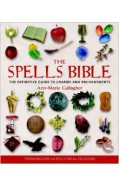

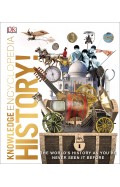
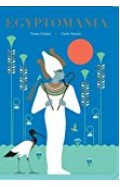
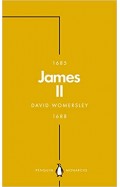




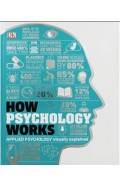
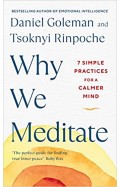







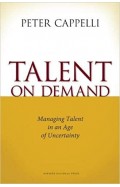


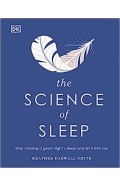

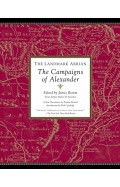
-120x187.jpg?q6)

